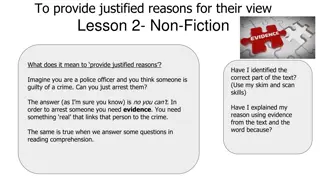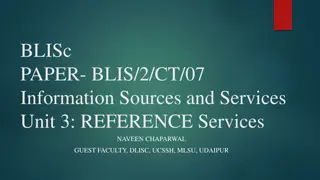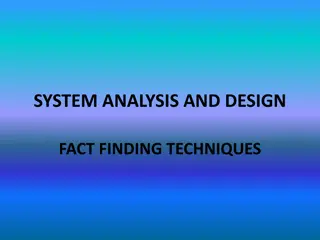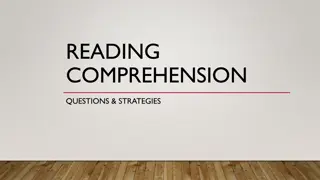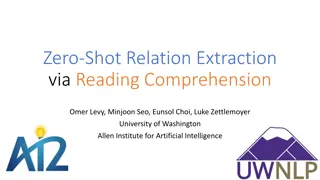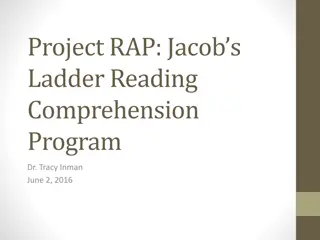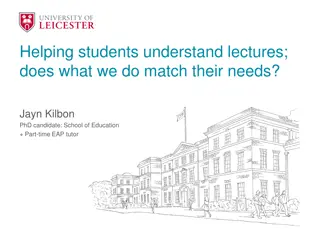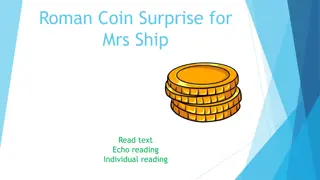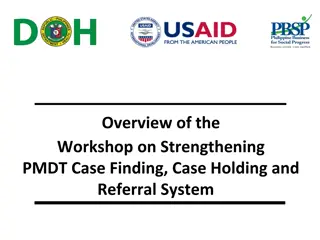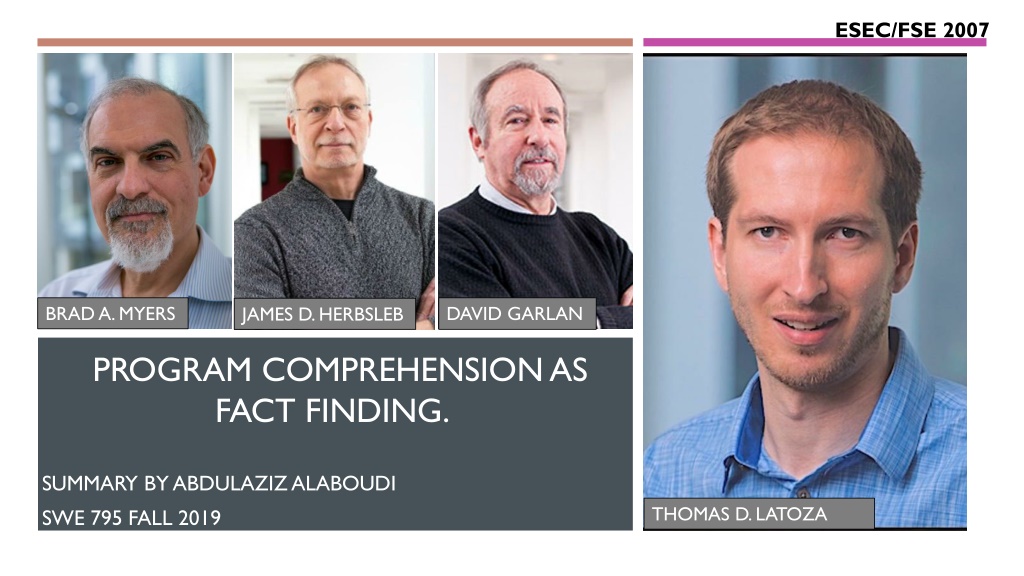
Program Comprehension in Software Engineering
The study discussed in the ESEC/FSE 2007 conference focused on understanding how developers tackle challenging code modification tasks and the impact of experience on their performance. Experts were found to address root causes of problems, while novices dealt with symptoms. Experts made better decisions based on relevant methods due to their knowledge, and they discussed code using abstractions rather than detailed statements. Novice criticisms often stemmed from lacking design knowledge.
Download Presentation

Please find below an Image/Link to download the presentation.
The content on the website is provided AS IS for your information and personal use only. It may not be sold, licensed, or shared on other websites without obtaining consent from the author. If you encounter any issues during the download, it is possible that the publisher has removed the file from their server.
You are allowed to download the files provided on this website for personal or commercial use, subject to the condition that they are used lawfully. All files are the property of their respective owners.
The content on the website is provided AS IS for your information and personal use only. It may not be sold, licensed, or shared on other websites without obtaining consent from the author.
E N D
Presentation Transcript
ESEC/FSE 2007 BRAD A. MYERS DAVID GARLAN JAMES D.HERBSLEB PROGRAM COMPREHENSION AS FACT FINDING. SUMMARY BY ABDULAZIZ ALABOUDI SWE 795 FALL 2019 THOMAS D.LATOZA
ESEC/FSE 2007 PROBLEM STATEMENT "Software engineering suggests that developers have a wide variety of knowledge about good design in the form of abstractions such as design patterns [6] and architectural styles [18]. But little is known about this knowledge or how it helps developers work more effectively" "We conducted a study to understand how developers perform challenging code modification tasks and the effects of experience on this process."
ESEC/FSE 2007 METHODS: 13 PARTICIPANTS All participants: (1) had at least two programming internships or fulltime development experience. (2) comfortable programming in Java.
ESEC/FSE 2007 METHODS: TWO TASKS, 3 HOURS, 54.7KLOC Tasks were about nonfunctional improvements such as better architectural design that lead to performance and reusability gain.
ESEC/FSE 2007 METHODS: PROCEDURE 30 minutes 90 minutes 90 minutes Getting familiar with first task Getting familiar with second task Get familiar with task relevant classes exploratory interview Tutorial on Eclipse First task Second task JEdit tutorial
ESEC/FSE 2007 RESULTS:CODE CHANGES Experts changes addressed the cause of the problems while novices changes addressed the symptoms.
ESEC/FSE 2007 RESULTS:SEEKING FACTS Experts made better decisions about which methods were relevant, mostly because of their knowledge.
ESEC/FSE 2007 RESULTS:LEARNING FACTS Experts talked about the code using abstractions rather than statement-by-statement descriptions
ESEC/FSE 2007 RESULTS:CRITIQUING FACTS Novice criticisms resulted from missing design knowledge. "It just seems really confusing for me to have this exact same method with the exact same parameters, they both have the handleMessage. I should investigate that. Hold on. c 0:40(C) " A single expert criticism justified Facts as design choice. "And the second thing that I don t like is that it is firing these updates. It seems like when you re making the edit, that in order to keep the responsibilities of these guys very simple, when you re making the edit, the people that care about that would be notified. L 0:26(F) "
ESEC/FSE 2007 RESULTS:EXPLAINING FACTS Experts explained facts novices were unable to explain,believing the decision could not possibly be overlooked but must be intended. False requirements led to missed constraints, and thus failing to explain facts.
ESEC/FSE 2007 RESULTS:PROPOSING FACTS Changes often began as vague goals, generating hypotheses, and were then refined by learned facts Novice proposals often did not solve the problem and worked out implementation details rather than considering general patterns.
ESEC/FSE 2007 RESULTS:IMPLEMENTING FACTS Experts implemented a change more quickly than novices
ESEC/FSE 2007 TOOLS IMPLICATIONS There are simple facts that developers discover. Tools may help developer discover these fact faster.(e.g., getFoldLevel has effects). A tool externalizing these facts might help make it easier for developers to remember them and return to the code associated with them.
ESEC/FSE 2007 QUESTIONS FOR DISCUSSION There were some interesting decisions in design the experiment (e.g. exploratory instead of control, nonfunctional changes tasks instead of functional changes tasks and small number of participants instead of large number of participants). If you were to replicate this study, what design decisions you would like to change? And why? Describe how existing tools (e.g., Eclipse debugger or any debugger) may use some the findings of this paper in their tool design?



